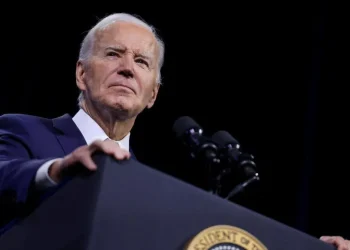As Ghana’s political landscape continues to evolve, the debate surrounding Article 71 of the country’s constitution has once again taken centre stage. This controversial article has been the subject of heated discussions among lawmakers, legal experts, and the public. The question of whether it should be amended or scrapped completely has resurfaced again and this time, coming directly from the Trades Union Congress (TUC).
The Secretary-General of the TUC, Dr. Anthony Yaw Baah, said Article 71 had created a super-class of people at the expense of others, fuelling discrimination and injustice against other classes of public sector workers.
Speaking at the Institute of Economic Affairs (IEA) Constitutional Review seminar last Tuesday, Dr. Baah said: “Article 71 smacks of discrimination between the political and public officeholders.”
Article 71 of Ghana’s constitution deals with the emoluments, benefits, and privileges of public officeholders, including the President, Vice President, Members of Parliament, and other high-ranking officials. It outlines the remuneration packages, retirement benefits, and other perks for these officials, setting them apart from the average Ghanaian citizen.
The public officeholders whose benefits have been outlined in Article 71 are outlined in Article 70(1) of the 1992 constitution which states that:
“The President shall, acting in consultation with the Council of State, appoint (a) the Commissioner for Human Rights and Administrative Justice and his Deputies; (b) the Auditor-General; (c) the District Assemblies Common Fund Administrator; (d) the Chairmen and other members of (i) the Public Services Commission; (ii) the Lands Commission; (iii) the governing bodies of public corporations; (iv) a National Council for Higher Education howsoever described; and (e) the holders of such other offices as may be prescribed by this Constitution or by any other law not inconsistent with this Constitution.”
Clause 2 of the same Article states that “The President shall, acting on the advice of the Council of State, appoint the Chairmen, Deputy Chairmen, and other members of the Electoral Commission.” Thus, these persons, in addition to some others not expressly mentioned in Article 70, are the category of persons referred to as ‘Article 71’ officeholders appointed by the President.
Arguments in favour of Scrapping Article 71
One of the primary arguments against Article 71 is the significant financial burden it places on the government. Critics argue that the generous benefits for public officials strain the national budget, diverting resources from essential public services like healthcare, education, and infrastructure development.
Others also believe that Article 71 contributes to income inequality by providing extravagant perks to public officials while many Ghanaians struggle with poverty and unemployment. Scrapping the article could help redistribute resources more equitably.
Advocates for change argue that scrapping Article 71 would promote transparency and accountability in government. With fewer lavish benefits, public officials may be more inclined to focus on public service rather than personal gain.
Arguments Against Scrapping Article 71
Supporters of Article 71 contend that the current benefits are necessary to attract and retain highly qualified individuals in public office. Lowering these perks might discourage competent individuals from entering politics, potentially leading to a decline in the quality of leadership.
There have also been some arguments that altering or scrapping Article 71 could be legally complicated and might violate the contractual rights of public officials who have been promised certain benefits under the current constitution.
There is also a concern that any attempt to amend or scrap Article 71 could be viewed as a politically motivated move. Opposition parties may accuse the government of trying to weaken the benefits of their members in power.
The Way Forward
The debate over Article 71 is far from settled, and it raises fundamental questions about governance, public service, and economic priorities in Ghana. Proposals to amend or scrap the article would require a consensus among lawmakers, as well as public support through a possible referendum.
As the nation grapples with these complex issues, one thing is clear: the future of Article 71 will remain a passionately contested topic, with profound implications for the country’s political and economic landscape. Public engagement, transparency, and open dialogue will be crucial in shaping the path forward on this contentious matter.
















